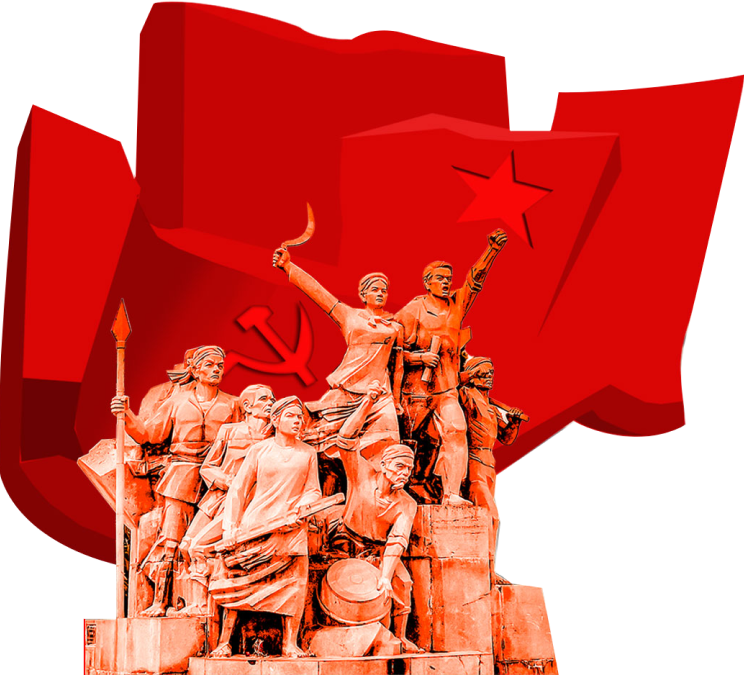Nguyen Si Duc - a communist soldier who fought with the people to gain Soviet power in Thanh Chuong
Nguyen Si Duc was imbued with Nguyen Ai Quoc's revolutionary ideology and understood the correct path of the Vietnamese revolution. From then on, during the Nghe Tinh Soviet movement, he enthusiastically participated in the struggle for power in the villages in Thanh Chuong.
Nguyen Si Duc (alias Qua) was born on March 2, 1905, in a poor farming family in Xuan Duong village, Xuan Lam commune (now Thanh Duong commune).,land rich in cultural, patriotic and revolutionary traditions of Thanh Chuong district, Nghe An province.
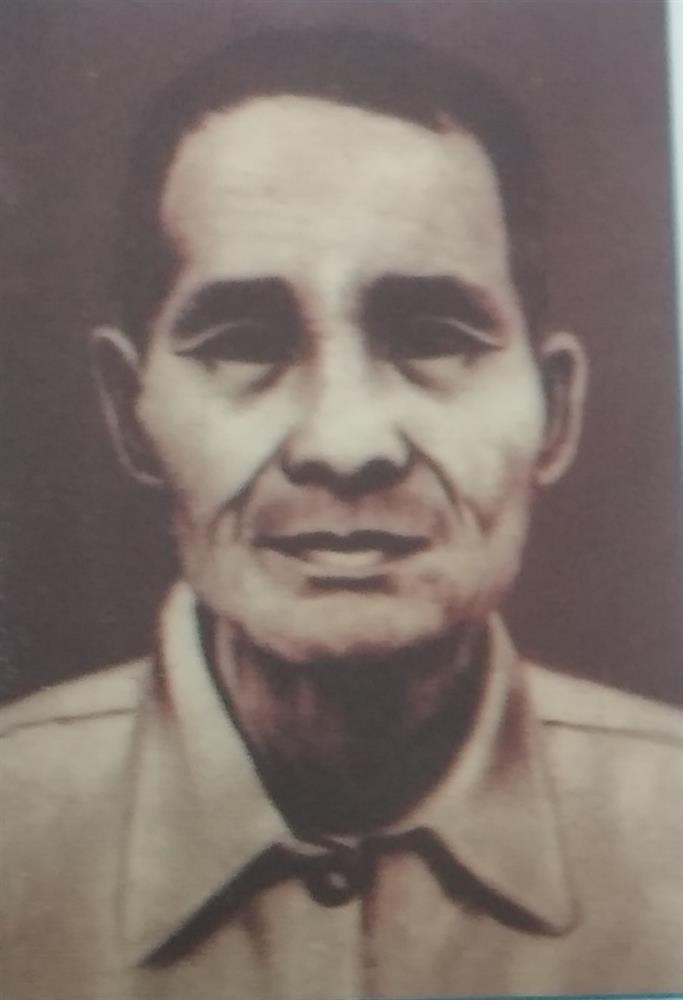
When he was young, Nguyen Si Duc was sent by his father to study Chinese and Vietnamese with Mr. Han Gian (the father of comrade Nguyen Sy Sach) in Tu Vien village. Due to his family's poverty and his father's early death, Nguyen Si Duc could not pursue his studies and turned to studying and working as a tailor.
Nguyen Si Duc joined revolutionary activities when he was only 15 years old. After the Phuc Viet Association was established in Vinh and expanded to Thanh Chuong district, Nguyen Si Duc quickly became an active member of the Tan Viet organization in Xuan Duong village, with many exciting activities such as distributing leaflets to enlighten the national spirit for all classes through Phan Boi Chau's poetry and literature, participating in teaching the national language, participating in friendship groups...
At the trading shop on Xuan Dong street - the base of Tan Viet (today's Con market), Nguyen Si Duc worked as a tailor for the shop during the day and carried out the tasks assigned by the organization at night. During this time, Nguyen Si Duc was imbued with the revolutionary ideology of Nguyen Ai Quoc and understood the correct path of the Vietnamese revolution.
After the Communist Party of Vietnam was founded, on March 20, 1930, under the direct leadership of the Central Party Branch of Central Vietnam, the Conference of delegates of Thanh Chuong communist party cells was held at Tien Son Temple (now Thanh Long Commune). The Conference elected the provisional Executive Committee of the Communist Party of Vietnam in Thanh Chuong District, and at the same time, decided to convert the Indochinese Communist Party cells in the entire district into Communist Party cells of Vietnam. The provisional District Party Committee considered the work of Party building and developing grassroots Party organizations as the top priority, assigning cadres to villages and hamlets to propagate and enlighten, making the masses understand the Party and the revolution.
On the night of March 20, 1930, under the chairmanship of Thanh Chuong District Party Committee, the Communist Party of Vietnam cell in Xuan Duong village was established, named Dai Thanh cell, with comrade Nguyen Van Dong as Secretary.
The birth of Dai Thanh Party Cell was a turning point for the revolutionary struggle movement of Xuan Duong People. The cell assigned party members and some active masses to the hamlets to propagate, enlighten and mobilize the masses.
Under the leadership of the Party cell, revolutionary mass organizations developed strongly such as: Red Peasant Association, Women's Liberation Association, Communist Youth Union, Red Relief Association...
On the morning of April 3, 1930, on the occasion of the Land Festival at the Temple of the Gods, the Party cell sent comrades Nguyen Si Huu, Nguyen Si Duc... to make a demand that the local authorities return 72 acres of land and 450 quan of money. After a period of active activities, in April 1930, comrade Nguyen Si Duc was admitted to the Communist Party of Vietnam [1].
In his memoirs, comrade Nguyen Si Duc recounted as follows: "Today I have joined the Party, I am very happy, standing before you comrades, I swear to be loyal to the Party, I will actively do any work assigned by the Party, even if I have to sacrifice, I am happy."
After that, comrade Nguyen Si Duc was assigned the task of organizing a Friendship Association in each hamlet to help each other, and at the same time, to propagate enlightenment to the masses. He mobilized the establishment of a group of 20 people, mobilized roofing, visited the poor and sick, and at the same time, propagated enlightenment to the masses about patriotism.
Implementing the Resolution of Thanh Chuong District Party Committee, Dai Thanh Party Cell was assigned the task of printing and distributing leaflets in Xuan Lam commune, preparing for the struggle on International Labor Day, May 1, 1930. The Party Cell carried out the assigned tasks, contributing to the overall victory of the demonstration.
From early morning of June 1, 1930, following the policy of the District Committee, under the leadership of Dai Thanh Party Cell, comrade Nguyen Si Duc and more than 300 people of Xuan Duong village participated in the demonstration and marched to the district office to fight for demands. The struggle was victorious.
At that time, in Phuc Yen village, there was a dangerous spy. The Xuan Lam General Committee decided to execute him. Receiving instructions from the superiors, the Dai Thanh Party Cell sent comrade Nguyen Si Duc and a number of party members and Red Guards to carry out the assassination. Because the information was leaked, the assassination failed, they burned down the house of comrade Nguyen Van Dong - Secretary of the Dai Thanh Party Cell and surrounded and destroyed Xuan Dong Street (today's Con Market). Comrades Nguyen Si Duc, Nguyen Si Huu, Nguyen Si Muc, Nguyen Van Dong... were captured by the enemy and imprisoned at Thanh Chuong Prison. They beat them but could not get any information and then took them to Vinh Prison.
After nearly 2 months of imprisonment and torture, they took comrade Nguyen Si Duc to Thanh Chuong Prison to continue to entice and interrogate him. However, he remained steadfast in the face of all the enemy's plots and tricks.
In July 1930, comrade Nguyen Cong Huy was appointed as Secretary of the Dai Thanh Party Cell. The Party Cell closely followed the directives of its superiors, both striving to strengthen mass organizations and, through these organizations, analyzing for the masses the enemy's sinister plots and tricks. The Party Cell eagerly prepared for the masses to participate in the struggle at a higher level and on a larger scale according to the directives of its superiors.
On the night of August 31, 1930, early morning of September 1, 1930, Xuan Duong village and many other villages and communes in Thanh Chuong district simultaneously broke out in a district-wide protest. The masses from all directions came to burn the district office, destroy files and documents, smash the prison to free prisoners, comrade Nguyen Si Duc was freed by the protest group [2]. Immediately after leaving the prison, comrade Nguyen Si Duc joined the crowd participating in the protest. The protest ended in victory. The enemy government disintegrated. The Soviet government was formed in almost all villages and communes in Thanh Chuong district. The protest is considered the starting point marking the birth of the Soviet government in Nghe Tinh - the peak of the 1930-1931 revolutionary movement nationwide.
After the demonstration to destroy the district office, the movement was very exciting, the mass spirit was very strong, the prestige of party members and cadres was deeply ingrained in the masses. Comrade Nguyen Si Duc joined the Executive Committee of Dai Thanh Party Cell.
In November 1930, comrade Nguyen Cong Huy - Secretary of Dai Thanh Party Cell was assigned to a new assignment. Comrade Nguyen Si Duc was elected as Secretary of Dai Thanh Party Cell.
The Dai Thanh Party Cell, under the leadership of comrade Nguyen Si Duc, paid attention to the work of developing the Party and strongly building mass organizations to meet the requirements of the new situation. As of December 27, 1930, Xuan Duong village had 20 Farmer Association groups (including 200 members), 40 Communist Youth Union members, 2 Women's Liberation groups including 50 members and 70 Red Relief members. The Party Cell launched many important struggles.
Also in December 1930, the people were starving, the Dai Thanh Party Cell under the command of comrade Nguyen Si Duc mobilized the masses to go to the rich to get rice to give to the poor, getting 30 quintals.
In early 1931, the feudal colonial government carried out a number of insidious policies to establish a system of gangs and communes. The gangs often lived in the villages, so they knew and arrested the right cadres, party members, and core masses of the revolution, causing heavy losses to the Party's base.[3]
In March 1931, comrade Nguyen Si Duc was appointed Secretary of the Xuan Lam General Committee. During this time, famine was widespread, and the imperialists and their lackeys were encroaching more and more. Faced with this situation, the District Party Committee advocated confiscating and borrowing rice from landlords to help the people starve, suppressing and eliminating reactionaries, relieving the siege of oppressed villages, and continuing to mobilize the masses to fight.
On March 27, 1931, under the direction of Thanh Chuong District Party Committee and Nam Dan District Party Committee, thousands of farmers from the two districts, supported by self-defense teams, marched into the Common House of Trang Den Parish to "borrow" rice to relieve hunger. At Xuan Lam commune, under the command of comrade Nguyen Si Duc, the people of the entire commune participated in breaking into the rice warehouse and took hundreds of tons of rice to distribute to the poor.
On April 19, 1931, the Xuan Lam General Committee, under the command of comrade Nguyen Si Duc, coordinated with the Dai Dong General Committee to mobilize the people to defend themselves and punish the reactionary tyrants, and revive the revolutionary movement in Di Luan (now Dong Van commune).
The activities of the Xuan Lam General Committee, headed by comrade Nguyen Si Duc and the Communists in Xuan Lam made the colonialists and reactionaries in the region fearful.
To suppress the revolutionary movement, the enemy carried out extremely brutal terror. They set up the so-called "village reform" in villages and communes. In addition to the system of Chief, Deputy Village Chief, Bang Ta, and Doan Phu, there was now an additional "Five-village Council". The Xuan Lam General Committee was severely suppressed, the enemy searched everywhere for communist party members and revolutionary masses.
In June 1931, the Xuan Lam General Committee sent Nguyen Van Thao and Phan Van Chung to deliver a document to the District Committee. On the way, they were captured by the enemy. The Xuan Lam General Committee, under the command of comrade Nguyen Si Duc, used the Self-Defense Forces of the Xuan Tuong, Phong Nam and Nguyet Bong Party Cells to rescue the two comrades. As a result, the soldiers had to flee and the two comrades were rescued.
On June 10, 1931, the local tycoons in Nguyet Bong village seized cows from people who did not have money to pay taxes and sold them cheaply to traders. The General Committee sent Red Guards from the Xuan Tuong, Phong Nam and Nguyet Bong Party Cells to intercept them, confiscated all the money, 170 quan, from selling the cows, returned it to the villagers and killed one rebel against the Self-Defense Forces. The next day, the Red Guards went to kill a reactionary in Phong Nam.
From mid-1931 onwards, the revolutionary movement in Thanh Chuong encountered more and more difficulties. The reactionary local authorities took advantage of the situation to raise their heads, extremely arrogant and brutal. They informed, searched, and arrested. The imperialists and their lackeys concentrated their forces to attack the Soviet area in Thanh Chuong. The District Party Committee encountered many difficulties in communicating with the Provincial Party Committee, many Party bases in villages and communes were continuously destroyed. The District Party Committee office withdrew to Ngoc Lam Border Gate, ready to accept the fierce and fierce struggle with the enemy. The General Committee office and Party cells had to move to many locations: from Con Dinh to Ky La through Doc stream...
Knowing that comrade Nguyen Si Duc was the Secretary of the General Committee, the secret police searched everywhere. Many cadres, party members, and revolutionary masses were captured and sacrificed by the enemy, such as: Ms. Phan Thi Bay (liaison of the General Committee Xuan Lam), comrade Nguyen Huu Tam...
In July 1931, while comrade Nguyen Si Duc was discussing a plan to find a way to Veu (Anh Son) to connect with his superiors, he was captured by the enemy and many comrades were shot dead. The Xuan Lam General Committee disbanded and the movement was suppressed.
The enemy took the comrade to Tu Vien station. The next morning, Bang Hung, Doi Toan and 5 soldiers in green uniforms escorted him to Thanh Chuong prison.
In his memoirs, he said: "I was tied behind my back and taken to the district.When the District Chief Pham Ngoc Bich saw me, he immediately asked: The communist general has been captured, where are the others? I replied that I did not know - he said he did not know, you are the Secretary of the General Committee and you do not know, better tell the truth, otherwise I will shoot you right now. I said, I was the Secretary of the General Committee, you would have shot me yesterday, what else do you want me to say. After that, they forced me to kneel on a bamboo stick, then beat me so hard that my whole body was bruised... For food, they gave me two handfuls of rice mixed with rice husks a day, and for salty food, a pinch of sesame salt or a few pieces of boiled bamboo shoots mixed with salt. They only investigated the agencies of the district and province.
It asked, "You are the General Committee, so you must know which one is from the district and which one is from the province, and where they are now." I said, "I don't know." It told the soldiers to beat me up and then took me to the prison to be handcuffed. The next morning, the soldiers took me up again...".
Although the enemy used all forms of extremely brutal torture, they could not subdue the comrade's will. After a while, they imprisoned comrade Nguyen Si Duc at Thanh Qua Prison.
In November 1931, comrade Nguyen Si Duc was taken to Vinh Prison. Here, comrade Nguyen Si Duc and his fellow political prisoners repeatedly organized slogan-raising struggles."must be given boneless meat, two sets of clothes and bedding a year, protest against brutal beatings, be allowed to read books and newspapers…".
He recounted: "After a few days, the soldiers handcuffed me, took me to the desk, took a photo, and took me to court. When I got to court, they didn't ask me anything. After reading the verdict, they forced me to sign it. I didn't sign it. They threatened me. Then I signed the two words "Appeal" Nguyen Si Duc."
On June 2, 1932, the Nam Trieu Court of Nghe An province sentenced Nguyen Si Duc to life imprisonment, Verdict No. 148.
On February 18, 1933, he was sent to Lao Bao prison. During his imprisonment, the secret police continued to use all kinds of despicable tricks to exploit information, but they were powerless.
In 1936, Nguyen Si Duc continued to be exiled to Buon Ma Thuot Prison, Dak Lak Province. Here, he was brutally beaten by the French colonialists but he was not discouraged, always optimistic, encouraging his brothers and comrades to maintain their fighting spirit. In prison, Nguyen Si Duc and his fellow prisoners participated in organizing many struggles to demand the removal of shackles and special treatment for political prisoners. In his spare time, he took the opportunity to read books, novels and study culture, politics, French and Chinese.
After the Japanese coup against the French, most political prisoners were released. However, some political prisoners convicted of communism and assassination were not spared. Some comrades who were released early submitted a petition to the Government requesting the release of all political prisoners being held. On July 30, 1945, comrade Nguyen Si Duc was released.
After returning to his hometown, he continued to participate in the uprising to seize power in the district on August 23, 1945. The uprising was successful, and the Provisional Revolutionary People's Committee of Xuan Duong village was established, consisting of 7 comrades, with comrade Nguyen Si Duc as Chairman [4].
In early 1946, Xuan Duong village merged with Tu Vien village to form Minh Tan commune. On March 24, 1946, comrade Nguyen Si Duc was elected Chairman of the People's Committee of the commune until December 1950.
From 1951 to 1969, he continued to be assigned to various positions in district and commune agencies and authorities [5]. In 1969, comrade Nguyen Si Duc retired according to the regime.
Due to old age and poor health, comrade Nguyen Si Duc passed away on March 26, 1984 (February 24 of the lunar calendar), at the age of 79.
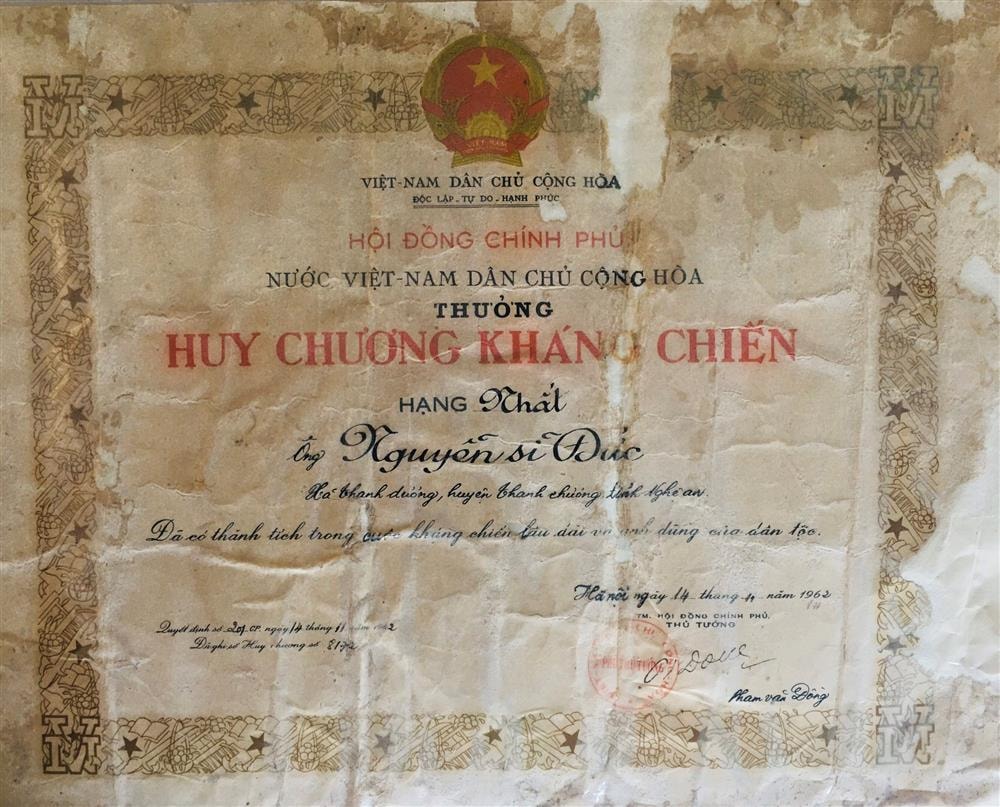

Comrade Nguyen Si Duc was a Party member, a loyal veteran revolutionary cadre, with many contributions to the Party and the Vietnamese revolutionary movement. In recognition of his contributions, the Party and State awarded him many noble titles such as: First Class Resistance Medal and posthumously awarded the Third Class Independence Medal; his family was awarded a Certificate of Merit to the Nation by Prime Minister Pham Van Dong according to Decision No. 19/CP dated January 28, 1964.
------
Note:
[1] According to the memoirs and autobiography of Mr. Nguyen Si Duc written on July 1, 1970.
[2] History of Thanh Duong Commune Party Committee, op. cit., p. 44.
[3] According to the Thanh Chuong District Party Committee, History of Thanh Chuong District Party Committee (1930 - 1975), National Political Publishing House, p. 81.
[4] According to the Thanh Duong Commune Party Committee, History of Thanh Duong Commune Party Committee (1930 - 1975), Nghe An Publishing House, 2015, p. 83.

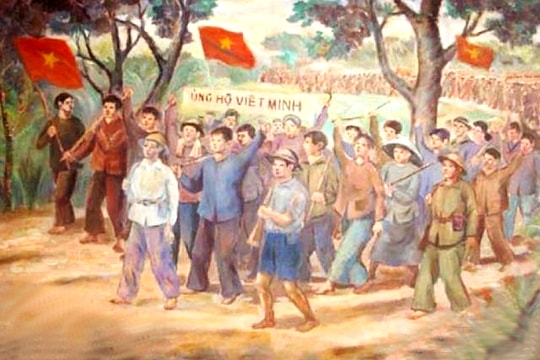
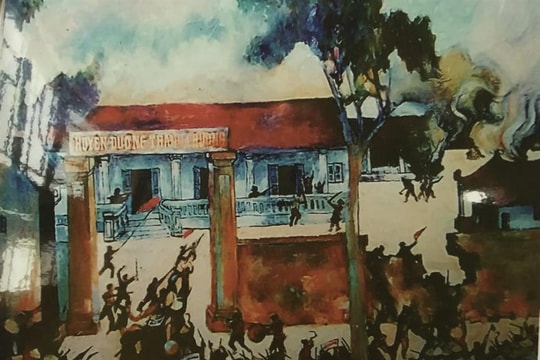
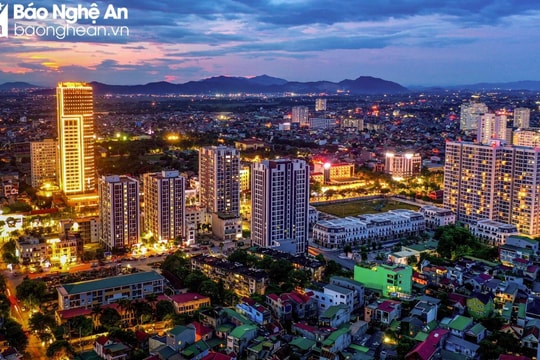
.jpg)

